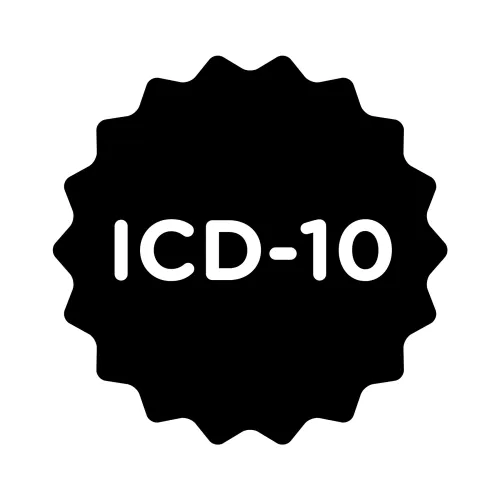Outpatient Facility Coding Alert
Get Confident in Distinguishing Dementia From Alzheimer's

One of the most common challenges for coders face when reporting dementia is that the terms “dementia” and “Alzheimer’s” are used interchangeably, when actually their clinical parameters are different. Read on for vital information that will help you distinguish the difference every time.
Begin With the Basics of Dementia
Dementia is the loss of cognitive functioning, thinking, remembering, and reasoning and behavioral abilities to such an extent that it interferes with a person’s daily life and activities. Dementia ranges in severity from the mildest stage, when it is just beginning to affect a person’s functioning, to the most severe stage, when the person must depend completely on others for basic activities of daily living.
The causes of dementia can vary, depending on the types of brain changes that may be taking place. It is common for people to have mixed dementia—a combination of two or more disorders, at least one of which is dementia (such as Alzheimer’s disease and vascular dementia).
Therefore, “dementia” is a global term for a set of symptoms that can include impaired thinking and memory often associated with the cognitive decline of aging. Patients with dementia may also show problems with motor skills, object recognition, and the ability to plan, organize, and abstract.
Run Through the Reasons
Alzheimer’s is the leading cause of dementia, associated with as many as 50 to 70 percent of cases, according to the Centers for Disease Control and Prevention.
Other conditions that may cause memory loss or dementia include:
Code Correctly With ICD-10
Physicians use many screening tests to determine the cause of dementia, including blood tests, mental status evaluations, and brain scans. Once your physician pinpoints the cause and diagnoses a specific type, you can code the patient’s condition more accurately.
Codes for dementia are located in categories F01-F03 in ICD-10-CM. The categories available are:
In fact, each category for dementia requires providers to specify whether the patient has behavioral disturbances. For example, you have two code choices for vascular dementia: without behavioral disturbance (F01.50) and with behavioral disturbance (F01.51). The ICD-10-CM Manual includes synonymous terms for behavioral disturbances such as aggressive, combative, or violent behavior.
Code the Underlying Disease First
Don’t forget to code the underlying physiological condition or sequalae of cerebrovascular disease for these diagnoses. When you are reporting F01.51, for example, coders are instructed to use an additional code, if applicable, to identify wandering in vascular dementia (Z91.83).
Providers may need to document additional information about the underlying physiological condition in order for coders to choose the most specific code. For example, when reporting Alzheimer’s, ICD-10 includes the following options:
Snapshot scenario: An elderly woman was diagnosed with vascular dementia after a stroke. She has experienced progressive short memory loss issues for the past few months. She has lost her interest in daily life, has balance problems, and forgets to take her medications. The diagnosis codes for her situation would be:
Providers also need to document any associated delirium or dementia, as the ICD-10-CM Manual instructs coders to use an additional code to identify these conditions when applicable.
Final note: Because dementia, Alzheimer’s, and other allied cognitive disorders are often confused and mistakenly grouped together or used synonymously, correct clinical documentation is imperative. If the symptoms and associated diagnosis are clearly reflected in the physician’s note, assigning the applicable diagnosis code becomes easier and safer.
Related Articles
Outpatient Facility Coding Alert
- Neurology News:
Get Confident in Distinguishing Dementia From Alzheimer's
Remember to pay attention to associated conditions. One of the most common challenges for coders [...] - Pain Management:
Prevent Denials of Interlaminar Injections by Pinning the Levels
You can drop the bilateral modifier. If your interventional physician performs more than one interlaminar [...] - Modifier Review:
Know Your Modifier 59 Better for Cleaner Claims
Modifier 59 (Distinct procedural service) is used when two codes are not normally reported together [...] - ICD-10 Training:
Delve Deeper Into Open Foot Wounds With More Anatomically Specific Codes
Specify right or left, ankle or foot. The next time you code an open foot [...] - Reader Question:
Tie the Trigger Point Injections With 20552 and 20553
Question: A patient suffered whiplash from crashing his car into a parked vehicle, and the physician [...] - Reader Question:
Append Modifier to 43239 to Reap More RVUs than 43249
Question: My understanding has been that we do not include a modifier when billing for 43249 [...] - Reader Question:
Don't Include 'Rule Out' Diagnoses
Question: My ED physician saw a patient for anterior wall chest pain. After examination, he suspected [...] - You Be the Coder:
Know How to Code for Nasal Valve Suspension
Question: Which CPT® code should I use for nasal valve suspension? Wisconsin Subscriber Answer: You should report [...]




